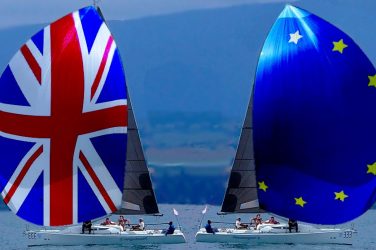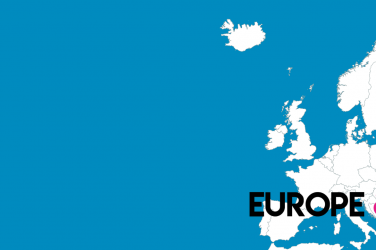THE HORSE – A SYMBOL OF DISTASTE
The great horsemeat scandal has shaken confidence in Europe’s internal market. Maybe it wasn’t quite the horses’ fault, but as a symbol which has been used to turn Member States against one another, the horse has stood out as the the Flop European of the last few months!
 ‘A horse! A horse! My kingdom for a horse!’ English King Richard III is meant to have cried as he lost his crown and his life as his horse had died in the battle of Bosworth. Yet no such request was made this year as horsemeat was discovered in meat products around the continent. The scandal revealed not only the darker side of the European common market, but the gut reflex we have for home-grown safety.
‘A horse! A horse! My kingdom for a horse!’ English King Richard III is meant to have cried as he lost his crown and his life as his horse had died in the battle of Bosworth. Yet no such request was made this year as horsemeat was discovered in meat products around the continent. The scandal revealed not only the darker side of the European common market, but the gut reflex we have for home-grown safety.
The ongoing horsemeat scandal (hereafter referred to as ‘Horse-gate’) began on the 13th of January 2013 when Horse DNA was found in products sold as beef. Quantities as much as 100% of the total product appeared in Ireland and the UK before spreading aross Europe. The incident immediately raised speculation over who (read: which nationality) had been involved and where the meat had been tampered with, destroying consumer confidence in products sold from around the EU.
MEDIA ON HORSEBACK
The horse or at least the national media on horseback quickly attacked the very fundamental principles of the European common market: trust, standardisation and free trade in defence of eating. Was it Romanian horse? Could it have been Italian gangsters that were to blame? The stereotypes were as unpalatable as a horse burger served with a bitter horseradish garnish!
The fact that the meat had likely passed through numerous countries between abattoir and package labelling and could have been tampered with at any stage of this journey did little to halt the recriminations. That is, until journalists realised that the whole European system could be brought into question, rather than pursuing the relatively small band of criminals who were actually responsible.
The stereotypes were as unpalatable as a horse burger served with a bitter horseradish garnish!
The irony here is that the untold story didn’t concern the horse itself, but the fact that the meat originating from the UK and sold on the continent had been found to contain ‘Bute’, a horse tranquilliser poisonous to humans. Naturally, the fact that horsemeat had been found in the UK was much more of a story than the fact that the UK was exporting contaminated meat!
THE WRONG CONCLUSIONS
Certainly there is a case to answer by both the European Food Standards Agency and national food agencies, and the Flop European award is as much directed at them as at the ‘horsing around’ that followed. The failure to detect any tampering or mislabelling of food in even one case represents a real failure to protect consumers. The failure to detect tampering at almost institutionalised levels seems to be a gross misconduct on a huge scale.
Yet the conclusions drawn from horse-gate seemed to focus more on the superiority of national foods, the imagined safety offered by localised sourcing (valuable on its own merits) and the criminality of foreign products, particularly from Eastern Europe, than on improving the wider checks and balances to ensure that the system works. This food-nationalism did wonders for the profile of the horse though, where British readers could discover the recipes which the French chefs still use to liven up a horse steak or two, as if this were as novel and alien as learning how Koreans cook dogs.
THE GREAT SCAPEGOAT
But then the actual issue was never really the horse in the first place. An EU-funded survey run by University College Dublin and Brunel University found that health risks were not the main concern of consumers in the UK and Ireland, but that labelling had not pre-warned consumers what the packet contained.
All this talk of horses and the morality of eating them was, for want of a better phrase, a scapegoat for the real issue. A simple analysis of the EU institutions to properly manage the common market would have sufficed. Instead the whole horse-gate saga was manufactured and Europe descended into recrimination and pointless descriptions of each country’s strange eating habits. The whole saga was promptly swallowed by the public, and it tasted decidedly fishy.
Cover photo: cosmo_71, CC BY-ND 2.0 (Flickr)










